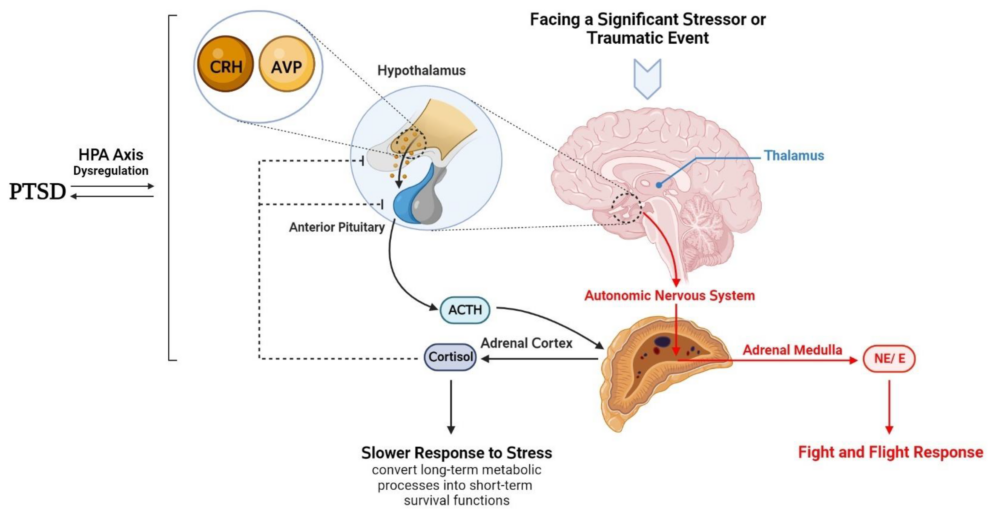When the body is under stress, whether it be physical or emotional, the hypothalamus in the brain sends a signal to the pituitary gland to release ACTH. This hormone then travels through the bloodstream to the adrenal glands, located on top of the kidneys. Once it reaches the adrenal glands, ACTH binds to specific receptors on the adrenal cortex, prompting the release of cortisol.
Cortisol is often referred to as the “stress hormone” because it helps the body respond to stress by increasing blood sugar levels, suppressing the immune system, and aiding in the metabolism of fats, proteins, and carbohydrates. In addition, cortisol plays a role in regulating blood pressure, reducing inflammation, and maintaining the body’s internal balance.
While cortisol is crucial for helping the body cope with stress in the short term, chronic or prolonged stress can lead to dysregulation of the body’s stress response system. Over time, high levels of cortisol due to chronic stress can have negative effects on various bodily functions, including immune function, metabolism, and cognitive function.
ACTH and cortisol are also involved in a negative feedback loop that helps regulate the body’s stress response. When cortisol levels rise, they signal the hypothalamus and pituitary gland to slow down the release of ACTH, thus reducing the production of cortisol. This feedback loop helps prevent excessive levels of cortisol in the body and maintains a balance in the stress response system.
In addition to its role in the body’s stress response, ACTH and cortisol are also involved in other physiological processes, such as regulating metabolism, blood pressure, and inflammation. Dysfunction of the adrenal glands, pituitary gland, or hypothalamus can lead to imbalances in ACTH and cortisol levels, resulting in conditions such as Cushing’s syndrome (characterized by excess cortisol production) or Addison’s disease (characterized by insufficient cortisol production).
In conclusion, adrenocorticotropic hormone (ACTH) plays a crucial role in the body’s stress response system by stimulating the production of cortisol, the primary stress hormone. While cortisol is essential for helping the body cope with stress, chronic or prolonged stress can lead to dysregulation of the body’s stress response system. Understanding the role of ACTH and cortisol in the body can help promote
overall health and well-being and prevent the negative effects of chronic stress on the body.





























Add Comment